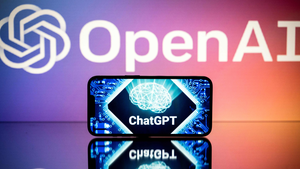Artificial intelligence (AI) is on the brink of becoming a ubiquitous force, poised to revolutionize industries and reshape our daily lives. Microsoft’s CEO recently made a bold proclamation, stating that AI will permeate mainstream society within mere months rather than years. This imminent breakthrough has the potential to redefine how we interact with technology and unlock unprecedented opportunities for innovation.
A Paradigm Shift in Progress
The rapid advancement of AI technologies has propelled us into an era where machines can learn, reason, and make decisions autonomously. Gone are the days when AI was confined to science fiction novels; it is now firmly rooted in reality. With cutting-edge algorithms and vast amounts of data at their disposal, AI systems have become increasingly proficient at performing complex tasks previously reserved for human intelligence.
From self-driving cars that navigate bustling city streets with ease to virtual assistants capable of understanding natural language queries, AI applications are already transforming various sectors. The healthcare industry benefits from improved diagnostics through machine learning algorithms analyzing medical images or predicting disease progression based on patient data. In manufacturing, smart robots work alongside humans seamlessly, enhancing productivity while ensuring safety standards are met.
Promising Opportunities Ahead
As AI continues its march towards mainstream adoption, countless opportunities emerge across diverse fields. Education stands to benefit greatly as personalized learning experiences powered by intelligent tutoring systems become more accessible. These systems adapt instructional content based on individual student needs and provide real-time feedback tailored to optimize learning outcomes.
In finance and banking sectors burdened by massive amounts of data analysis requirements, advanced machine learning techniques enable efficient fraud detection mechanisms while improving risk assessment accuracy. Additionally, customer service experiences undergo significant enhancements through chatbots equipped with natural language processing capabilities that offer prompt assistance around the clock.
Moreover, AI’s potential extends to environmental sustainability efforts. By leveraging predictive analytics and machine learning algorithms, energy consumption can be optimized, reducing waste and carbon emissions. Precision agriculture techniques driven by AI enable farmers to make data-driven decisions regarding crop management, leading to increased yields while minimizing resource usage.
The Future is Now
In conclusion, the advent of artificial intelligence is no longer a distant dream but an imminent reality that will permeate our lives sooner than we may anticipate. The transformative power of AI promises breakthroughs across industries and opens up new frontiers for human ingenuity. As we embrace this technological revolution with cautious optimism, it becomes imperative to ensure ethical considerations guide its development and deployment for the betterment of society as a whole.
